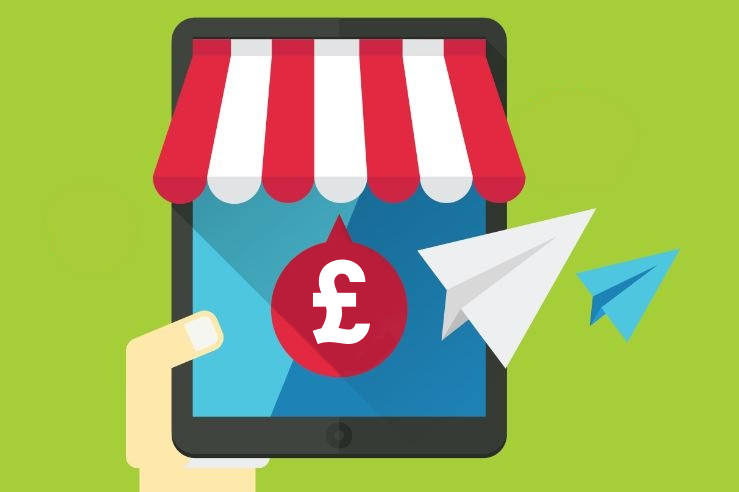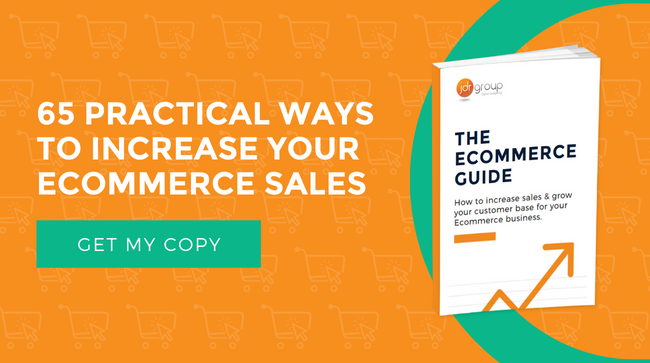How To Boost Your Ecommerce Sales With Inbound Marketing!

Once upon a time, salespeople would contact customers and tell them they needed product X in their life, and if they didn't have this product they'd be missing out and life would be incomplete. However times have changed!
Sales no longer control the flow of information in the buying process - instead the customer has more control. If a customer has an interest in a certain product or service they will more than likely hop on Google for speedy answers to their questions. In many ways, the middle man has been axed from the equation - but what does this mean for ecommerce businesses?
Essentially this shift in power has levelled the playing field for both marketers and salespeople. Marketing teams now play a huge role in guiding ideal customers through the sales pipeline - this is especially true for ecommerce businesses. Inbound Marketing is a relatively new framework which focuses on attracting the attention of your ideal customers (even before they are ready to actually make a purchase) via content creation such as social media, blogs, emails and pay-per-click. Carry on reading for some top tips on how boost your ecommerce sales!
Your Content Needs To 'Hit The Spot!'
Content marketing is a massively influential part of encouraging online sales. Without high quality content your entire business will cave in on itself like a house of cards blowing in the wind. Your content needs to look interesting, crisp and professional otherwise your customers will lose interest very quickly and go elsewhere. All content from your business such as your website, your products / services, your social media, your emails and your offers should satisfy a customer's 'pain point'. A pain point is the reason they are interested in your company.
In today's fiercely competitive market your content needs to shine if your business stands any chance of attracting new clients. Things to consider include:
- Purpose: Your content needs to have a purpose - types of purpose include inform, persuade or entertain. Think about what exactly your customers are looking for. Ecommerce businesses sell products online, and therefore your content (like your social media, blogs, your visual content such as your videos and infographics, your website pages and your display ads) should be geared towards generating interest around your products to encourage people to buy them.
- Visual Appearance: Your online content needs to look professional. Humans have a tendency to judge books by their cover (so to speak) - and therefore it makes sense that we would also judge the credibility of an ecommerce website by the look and layout of the page. When selling products online your images need to be high definition and the layout of your website needs to be easy to navigate. Broken links and slow loading speed aren't acceptable. Your website must also be mobile-responsive otherwise your customers will simply look elsewhere. Click here for top tips on mobile-responsiveness!
- Audience: Always keep in mind who your ideal market is. Your content needs to adhere to your audience’s needs and wants. For example, when selling products online the vast variety of people will look at the image(s) and then compare the product description and specifications. Make sure the writing is simple to understand, jargon-free and quick to process.
- Reviews & Testimonials: We live in a society where people are very weary of being scammed or wasting their money on things that aren't useful. Adding honest reviews and testimonials to your website will boost your reliability and credibility, therefore leading to an increase in sales.
Email Marketing
In spite of the fact email has been around for over 20 years it's still one of the most effective ways of guiding customers through the sales pipeline. This is because the vast majority of people have access to email; plus email is something most people check every day without fail. Due to the sheer volume of emails sent everyday it's extremely easy to have your messages lost in the dark depths of email inboxes. Follow these pointers below to prevent this from happening:
- Encourage Your Customers To Review Your Products: After a customer has purchased an item from your website you will have access to their email address. This is the perfect opportunity to ask people for their thoughts and feelings - as well as what they like and dislike. Asking these types of questions shows you care about their individual experience and also allows you to develop your services for future reference. (If you are going to ask for reviews it might be worth offering your customers an incentive - for example, giving them a 10% discount for their next purchase.)
- Cart Abandonment Emails: Sometimes customers will add products to their basket but never actually complete the purchase. This could be because the customer was distracted, or there is a glitch with your website's online checkout system. Sending your customers gentle reminders is a great way to encourage them to complete the transaction.
- Customer Rewards / Incentives: This one is fairly obvious, however you should always reward your customers for their loyalty. Customers that feel appreciated are far more likely to buy from you again. Furthermore, customers that feel appreciated should theoretically tell their friends and family about you. Likewise to this, there is nothing wrong with sending your dormant customers little reminders about your products and services.
Pay-Per-Click
In essence pay-per-click (also referred to as Google AdWords campaigns) allow your business to target specific keywords that you want your website to be flagged for in the different search engines. For example, if your business sells high quality video cameras online you would target keywords like 'professional photography' or '1080p camera equipment.'
Some business owners make the mistake of thinking Google AdWords is just a waste of money or that it's not necessary to generate new sales online, however they couldn't be more wrong. While it's true Google AdWords does carry a cost, the benefits far outweigh the negatives. Google AdWords significantly boosts the chances of your ecommerce website being shown in the Google search results - which will increase the number of customers exposed to your company.
Further Help
For further tips and tricks on ecommerce business we recommend checking out the following articles:
- 4 Quick Ideas To Increase Sales For An Ecommerce Business
- 8 Ideas For A Great Acommerce website Homepage
Final Thoughts
With countless marketing strategies and different advice out there it can be hard to pinpoint the best strategy for your particular niche. It can also seem like there simply aren’t enough hours in the day to achieve everything you need to do. For this reason we recommend contacting the JDR Group for a detailed review of your current marketing efforts. Our team of experts can help you pinpoint your areas of weakness and give you excellent advice on how to improve for the future.



